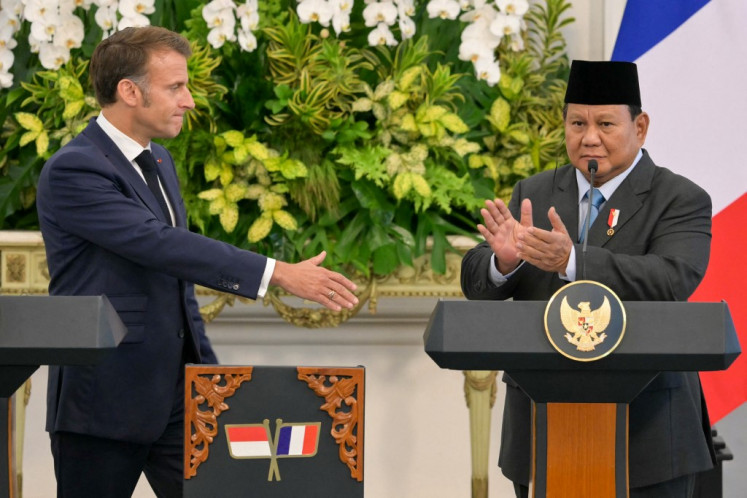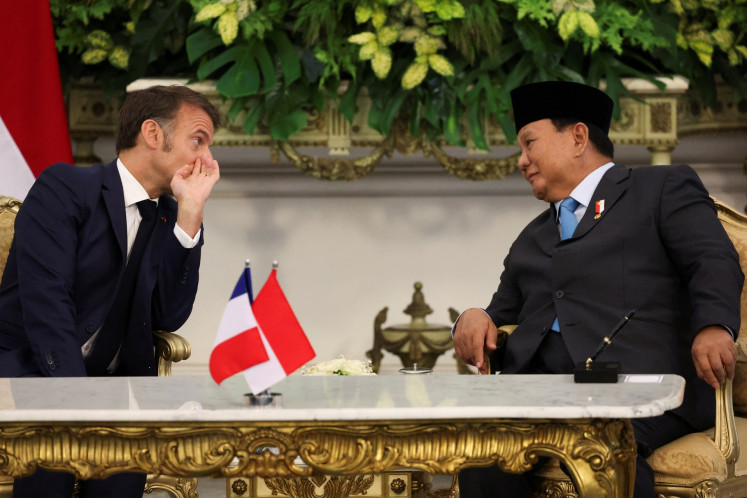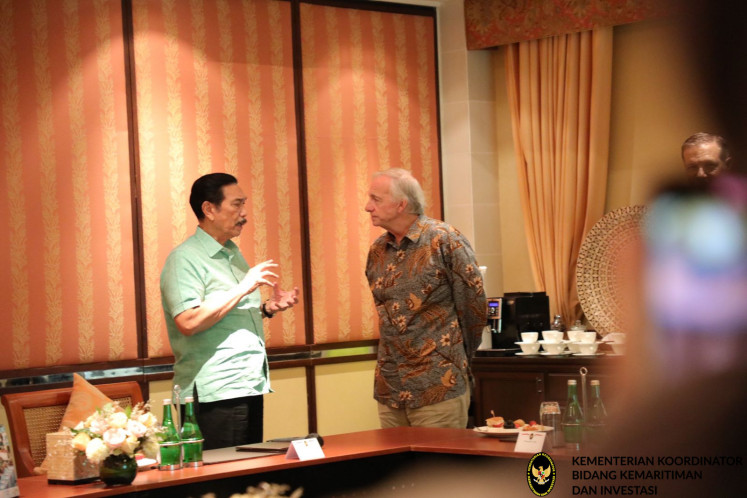Indonesian Toilet Association raises stink over cleanliness
The lack of clean public facilities in the country attests to the apathy most people feel regarding the issue of toilet cleanliness, according to a concerned group
Change text size
Gift Premium Articles
to Anyone

The lack of clean public facilities in the country attests to the apathy most people feel regarding the issue of toilet cleanliness, according to a concerned group.
"Most Indonesians still look down on toilets although they use them at least five times a day," said Naning Adisowo, chairwoman of the Indonesian Toilet Association.
"Sorry to say, most toilets in state buildings are badly designed, forcing the user to spray a lot of water," she said.
She estimated that on average, an Indonesian uses 21 liters of water in the toilet per day.
"There must be action from the government to promote clean toilets that use less water. It could be part of the effort to mitigate a potential water crisis due to climate change," she said.
"Clean toilets do not have to be luxurious. It is more important to have the design be eco-friendly and use less water and energy."
Naning pointed to several countries where toilet cleanliness is a top priority.
"Several countries, including Singapore, China and Thailand, are selling their clean toilets to attract tourists," she said.
The Chinese government has promoted the use of green toilets to welcome millions of athletes, officials and visitors to the 2008 Olympic Games in August.
Naning, who is an interior designer, began to realize the importance of clean toilets after being invited to the World Toilet Organization-sanctioned World Toilet Forum in 1999.
She set up the Indonesian Toilet Association in 2001.
"Since then, we have campaigned to change the public mind-set on clean toilets," she said.
The association travels to cities to inspect the quality of toilets both in private and state buildings.
"We have invited officials from state offices, including the Health Ministry and the State Ministry for the Environment, to discuss the issue but there has not been a positive response. They laugh at our program," she said.
"I say a nation without good toilets is a nation without culture. Dirty toilets are a national embarrassment."
Naning said the Jakarta administration pledged to set up green public toilets, but never followed through with action.
"I think it (dirty toilets) discourage tourists from visiting Jakarta," she said.
"We are now lobbying the administration of Yogyakarta to establish green public toilets and make it a selling point to attract tourists."
The association also visits schools and universities to teach students about proper toilet behavior and "ecological sanitation".
"We also plan to provide free-of-charge training to cleaning service staff on how to maintain toilets," she said.
The majority of Indonesia's 220 million citizens do not have access to proper sanitation, including toilets.
The National Development Planning Board said poor sanitation caused potential economic losses of US$6.34 million annually and led to the deaths of 100,000 toddlers every year.
There are a number of international forums on toilet issues, including the Singapore-based World Toilet Organization and the World Toilet Association in South Korea.
Currently, the WTO has 91 member organizations from 46 countries.
"But officials from the Indonesian government never attend the toilet forum," she said.









